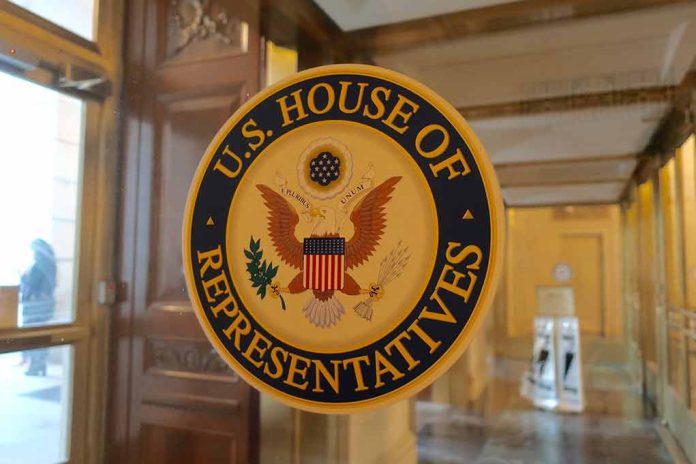
The recent passage of the National Defense Authorization Act (NDAA) by the House has stirred controversy due to its inclusion of contentious policies.
At a Glance
- The House passed an $895 billion defense bill primarily for Pentagon and military operations.
- The bill denies transgender health coverage for minors, causing Democratic opposition.
- It offers a 14.5% pay raise for junior enlisted service members.
- The NDAA targets inefficiency, saving $31 billion by cutting obsolete programs.
House Passes NDAA with Significant Changes
The House of Representatives has passed the National Defense Authorization Act (NDAA) with a vote of 281-140, allocating $895.2 billion for defense and national security. This represents a 1% increase over the previous year’s budget. The bill, which traditionally garners bipartisan support, faced opposition from 124 Democrats due to a controversial provision restricting transgender treatments for minors.
The NDAA includes several key provisions aimed at improving service members’ living standards and addressing recruitment issues. Notably, it proposes a 14.5% pay raise for junior enlisted troops, a move widely supported across party lines. The bill also introduces changes to diversity, equity, and inclusion (DEI) programs at the Pentagon, including a hiring freeze on DEI-related roles.
Controversial Transgender Care Provision
The most contentious aspect of the bill is a provision that prevents TRICARE, the military’s health care plan, from covering treatments for gender dysphoria that could result in sterilization for children under 18. This provision has led to a significant divide between Republicans and Democrats.
Democrats have strongly criticized this provision, arguing that it is discriminatory and politically motivated. They contend that it could deny necessary treatments for mental health issues in transgender minors.
Additional Provisions and Omissions
The NDAA includes several other notable provisions. It supports deploying the National Guard to the southern border for illegal immigrant apprehensions and drug flow control. The bill also prohibits the Pentagon from contracting with companies that blacklist conservative news sources and does not authorize climate change programs.
House Speaker Mike Johnson highlighted $31 billion in savings from cutting inefficient programs and obsolete weapons. However, Democrats expressed disappointment that the bill did not expand access to IVF for service members. The NDAA also does not include a ban on funding for gender transition surgeries for adults or a ban on mask mandates.
Next Steps
The NDAA now moves to the Senate for consideration. If passed, it will be presented to President Biden for approval. It’s important to note that the bill requires a separate defense spending bill to allocate funds for the programs outlined. As the political debate continues, the fate of this contentious defense bill remains uncertain, with its provisions likely to shape military policy and social issues in the coming year.
Sources:
- House passes massive defense bill with ban on gender-affirming care for transgender kids
- House Passes Defense Bill Denying Transgender Health Coverage for Minors
- 124 Dems oppose historically bipartisan defense bill over restrictions on transgender treatments for minors










